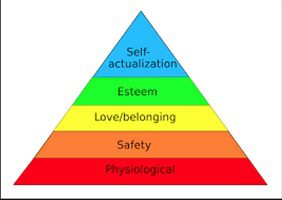4 Difference between production and productivity with Similarities and FAQs
Production and Productivity
In the world of finance and business, it is necessary to know and distinguish between two fundamental terms to understand and achieve the proper functioning of an organization: production and productivity. In this article we will provide you the differences between production and productivity.
Although, in a way, it may seem that production and productivity are synonymous, the truth is that this is not the case, although they are two very related terms.
In this article, we’ll cover the differences between production and productivity , as well as carefully explain their definitions and understand what their relationship is when it comes to understanding how a company works.
What does productivity mean?
Productivity is a concept used in economics that refers to the ability of a company to generate goods or services with a limited amount of resources . This means increasing the added value obtained for each unit of resource consumed, resulting in more production and greater benefits in relation to the costs incurred. It can be achieved through technological improvements, optimization of the production process, improved efficiency and optimal use of available resources. Productivity is essential to compete successfully in the currently highly competitive global market .
What does production mean?
Production is the creation of goods and services from resources through an organized process . This is the set of activities carried out to transform inputs into a product or service demanded by the market. This action can be related to manufacturing, construction, agriculture, transportation and whatever economic sector it is carried out in. Production is a key element to generate wealth in organizations since it allows commercial income to be obtained directly linked to the final manufactured product .
Similarities between productivity and production
Productivity and production are related concepts, since both refer to the quantity of goods or services created . Productivity is a measure of the level of efficiency with which human, financial and material resources are used to produce a given good or service. For its part, production is the process by which workers use available resources to create something useful. This includes everything from constructing buildings to manufacturing computers and other electronic devices. Therefore, we can say that while productivity focuses on improving the way results are obtained, production focuses on the activities necessary to achieve this goal.
Main differences between the two concepts
Next, we present the fundamental differences between production and productivity.
1. Measure
Output measures what a company has produced , whether in the form of goods or services. On the other hand, productivity measures efficiency, in which the total production of the company itself can be included.
2. Expression
Production is measured and expressed in absolute terms, as it focuses on what is produced. For example, if a company produces 100 soaps per day, we will say that it produces exactly 100 soaps per day. As you can see, it is a very simple and easy to understand measure.
On the other hand, productivity is measured in relative terms , since, as it encompasses many more variables than production and, some of them, difficult to measure, it is not possible to calculate it precisely or concretely.
Returning to the example of the soap company, to calculate its productivity, it is not enough to know that they manufacture 100 soaps every day. It is a useful fact, but it is necessary to know much more, such as the materials invested, their cost, the time spent, the individual production of each employee, the machines used and their maintenance …
3. Product and usability
Output is a measure of the total quantity of products and services offered at the end of the process. By itself it does not indicate how well the raw materials were used .
Thus, the measure of production simply allows us to know to what extent the production produced by a company generates profits or, on the contrary, implies losses.
On the other hand, productivity is a measure that allows us to know to what extent resources have been used.
An organization is productive if it has made intelligent use of resources , not wasted materials or wasted in the process.
4. Added value
When a certain product is produced or a service is offered, the company itself assigns a value, taking into account what was initially invested and what percentage of revenue you want to obtain.
For productivity, however, although it is a difficult calculation, it is not possible to assign an arbitrary value. It is the total efficiency of the company in the production of a product or service, which must take into account the expenses and benefits obtained in the most objective way possible , without the possibility of adding value.
Frequent questions
What is productivity?
Productivity is the measure of efficiency with which a worker, company or system produces goods and services. It is the quotient between the goods and/or services produced (product) and the resources used to produce them (input). Productivity can be increased by improving processes, reducing costs, using more advanced technologies, optimizing preparation times in industrial equipment, etc.
What is productivity and an example?
Productivity refers to the amount of goods and services that a person, company or country produces in a given period of time. An example would be a worker who produces 10 products in two hours, which would mean a productivity rate of 5 products per hour.
What is productivity and how is it measured?
Productivity refers to the amount of goods and services that a person, organization or economy can produce with available resources. It is measured by dividing the total value of the goods and/or services produced by the volume of resources used for their production.
What is productivity in a nutshell?
Productivity is the ability to produce useful results with a minimum of time, effort and resources.
How to define the concept of production?
Production is the process of transforming resources (inputs) into final products with added value. This transformation generally involves the combination of several components, including human labor, raw materials, and energy to create something new. The final objective of the production process is to generate an economic benefit for the companies that carry it out.
What is meant by production in economics?
Production in economics refers to the creation of goods and services with the aim of satisfying human needs. This includes agriculture, manufacturing, construction, natural resource extraction and other productive processes. Production is an important part of the economic system since it allows individuals to generate income by selling their products or services.
How are the types of production classified?
Types of production fall into two main categories: mass production (also known as industrial production), and custom or custom production. Mass production involves manufacturing similar products on a large scale, while custom or custom manufacturing means that products are made specifically for a customer.




